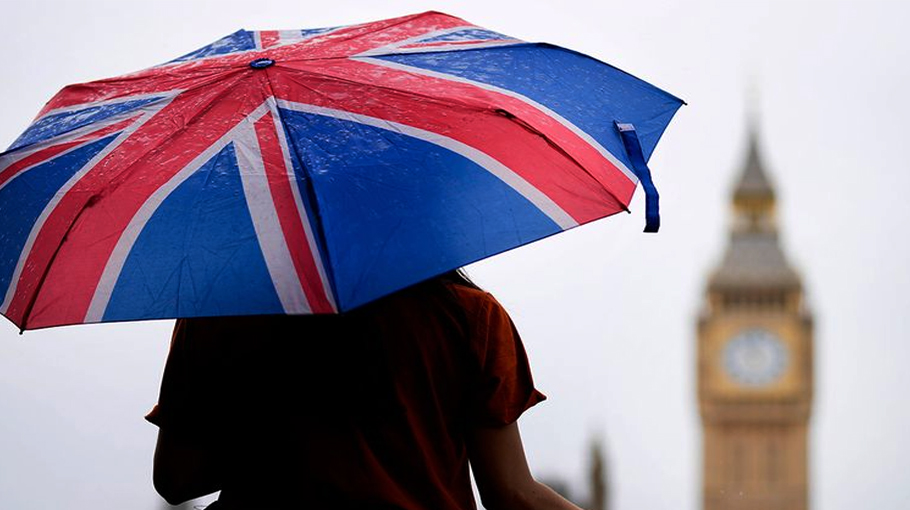Brexit: UK’s subtle shifts reflect growing Bregret
UK’s decision to return to the EU Horizon scheme shows there’s growing buyers’ remorse

There’s a new word that is creeping into the political lexicon in the UK over these past months: Bregret.
Just as Brexit was conjunctive shorthand for ‘Britain’ and ‘exit’ from the European Union, Bregret is similar, but refers instead to ‘Britain’ and ‘regretting leaving the EU’.
Yes, it is a growing phenomenon among the political classes, voters, and bright young people in particular, who are missing out on all that membership of the EU had to offer.
I used to have an old newspaper boss who would tell us that we’d miss him when he’s gone. We did. And yes, the Brits are missing the EU now that they’re gone.
I’m not so sure the feeling is mutual. But at least Brussels is willing to offer olive branches to London when it can. And when it’s in the best interests of the UK government to accept those olive branches.
Fission and fusion
On Thursday, the UK said it would be rejoining the Horizon programme. It’s the collective term given to scientific research and innovation programmes that allow for the sharing of cutting-edge work across medicines, technology, education, engineering, bioengineering, space — anything and everything that advances our collective knowledge in the European scientific community.
And from Thursday, UK researchers can apply for grants and funding and bid to take part in pan-EU projects.
It’s a big step forward for the UK — or rather a step back into the EU fold in that area. The deal doesn’t cover projects linked to Euratom, the programme that deals with all things fission and fusion — but there’s a feeling that could very well happen down the road.
What’s important right now is that this return to the Horizons programme is a small, incremental but philosophically important step in breaking the blinker vision of Brexit.
The EU, for all of its failings, represents more than 500 million people — largely affluent, closely linked — that together make up an economy that is the third largest in the world after the United States and China.
Just as Brexit was conjunctive shorthand
for ‘Britain’ and ‘exit’ from the European
Union, Bregret is similar, but refers instead
to ‘Britain’ and ‘regretting leaving the EU’
By integration, having minimal checks, people, goods and services move freely across the nations of Europe, generating wealth and providing a cohesive platform to progress on a path of economic, social and transformative change. For all of its failings, it works.
So Brexit, sold under the political slogans of “taking back control” or being able to “control our own borders”, meant turning the UK’s back on economic and social opportunity.
And no sooner had Britons voted for Brexit than the reality began to sink in. It was never going to work out as the Brexiteers had planned. It was a nice idea but it just doesn’t work.
The Horizon programme
Sure, no one could have predicted that coronavirus would shut down the world. Nor that the conflict in Ukraine would arise. But other economies have recovered. And for the Brits, who were also suffering from the self-inflicted hit of 7 per cent on their gross domestic product caused by Brexit, they’ve simply had a much tougher time making a go of everything.
Hence Bregret, and the need to stem as much of the damage from leaving the EU as can be attained while saving political face.
Boris Johnson, long the loud and duplicitous mouthpiece of the Brexiteers, is gone. And Rishi Sunak, a prime minister more at home in spreadsheets than on the streets, knows all too well that the UK needs as much of Europe as it can get — while still citing, not too loudly, the benefits of Brexit.
Thursday’s return to the Horizon programme comes after months of quiet, discreet negotiations between officials from London and Brussels. That’s the way talks should happen — not in the on-again, off-again talks in the glare of the cameras as much of the Brexit negotiations were done. Yes, posturing is a big part of politics, a gigantic part of Brexit.
Remember all of the angst caused in Northern Ireland by the special deal cut by Johnson, simply drawing the customs border down the Irish Sea, leaving England Scotlandn and Wales in one customs zone outside the EU? That was effectively solved last year by quiet negotiations, with the Windsor Framework reaching a more realistic deal that solved most issues. Like any compromise deal, it’s not perfect. But it works.
Return to Erasmus programme?
And now, because of Bregret, the UK will gladly look at any way of inching closer to the EU. Quietly. Sensibly. Through low-level and discreet talks.
Erasmus is a scheme that allows young people in third-level education, to work across Europe, studying and doing the things that students do.
Expect a return to the Erasmus programme by the UK soon.
Pets and their passports is another area where there’s movement. Brits who wanted to travel abroad simply could pack their car and their pet and drive, under a EU passport scheme for pets. Now, thanks to Brexit, it’s a mess. But there’s movement.
A softer line is also expected on things like residency rights. And later this month, when Brits get their mobile phone bills with excessive roaming charges racked up on the beaches of Spain, Portugal and Greece, they’ll be pushing for a return to the days when there were no roaming charges. That was before Brexit of course.
So yes, Bregrets, the Brits are having Brexit regrets. There won’t be a return to full EU membership anytime soon if at all — would the EU want them? — but those Brexit hard lines are being slowly erased.
Think of it as EU-lite.
Mick O'Reilly, is Foreign Correspondent at Gulf News l. Source: Gulf News





